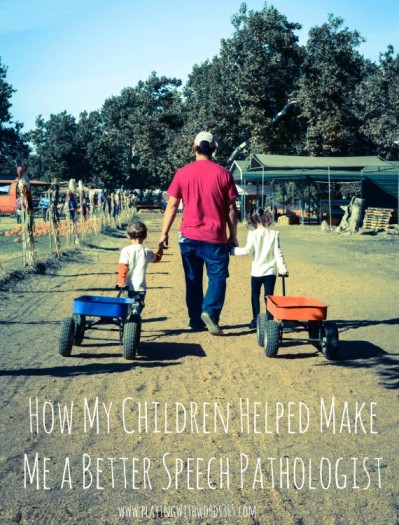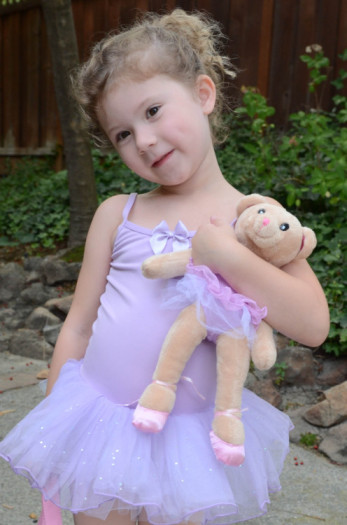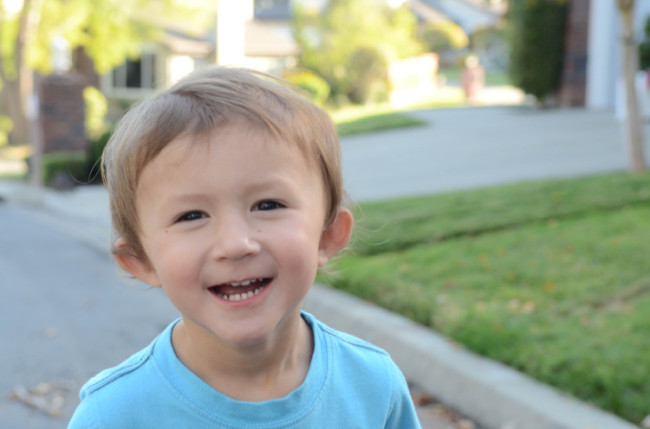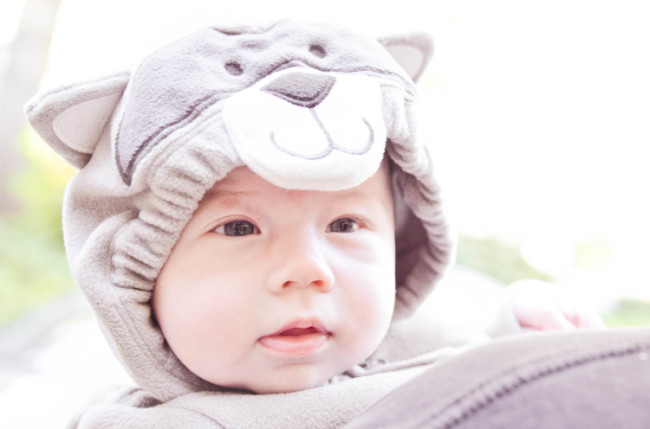Bringing baby Emory into the world got me thinking about how much my children have enriched my life and have made me a better person. My children show me love I didn’t even know existed and my life will be forever changed because of their sweet faces.
But my children have also had a huge impact on me professionally as well, which I was not expecting. Each of my children, even this new little guy, have taught me great lessons that have truely made me a better speech-language pathologist.
I want to preferece this post, which a couple things. First, you don’t have to have kids to be an amazing speech pathologist. You don’t. And also, for parents out there reading this when looking for an SLP for your child, please don’t think the SLP needs to be a mother to “get it” and be the best SLP for your child. There are so many dedicated, educated and wonderful SLPs out there from all backgrounds. I am just going to share my personal story. I want to share with you how my children have made me a better SLP. (And hopefully I can get through writing this without too many tears!)

My Daughter
My daughter. My sweet firecracker E. (Well the tears already have started, bear with me!). She made me a mother, so for that I am eternally grateful. She came into our lives and changed the way I viewed the world (children can do that).

If you have been reading along for a while, you know that just before her second birthday (when I was very pregnant with my son) E started having difficulty walking and was soon diagnosed with juvenile arthritis, an auto immune disease that causes the body to attack its own joints. Our lives were a bit turned upside down. Suddenly my daughter needed procedures and medications and blood work and doctors appts.
And suddenly my daughter needed both physical and occupational therapy.
I suddenly had to switch roles from the therapist to the parent. And let me tell you….it is different being on the other side.
I was now the one being given tips and homework and needing to drive her back and forth to the therapies, rather than the one sitting in the office/classroom dishing it out. The roles had been reversed!
My child has special needs, though hers are different from the children I generally see in therapy. Having a child with medical issues has given me a whole new perspective on what the parents of the children I work with go through. From the fear, to the anxiety, to the guilt, to the stress, to the financial burden (MRIs and joint injections on little people sure do cost a lot!). I may never know what it is like to have a child with a developmental disability, but I can relate to the struggles of having a child with needs.
And this experience has made me even more empathetic, patient, and caring towards the families I work with. Yes, I have always been all those things, but having a child with health/medical needs has opened my eyes more to what the parents of the children I work with go through. Specifically, having a child with special needs:
- Can be exhausting. The therapies, doctors appointments and more.Â
- Can be stressful. Ok it is stressful.
- Can change your relationships with others. Here you are with a child with needs and you are trying to figure out how to best help them…and you will start to hear lots of opinions from other people on what you should do, often unsolicited. This can be uncomfortable and sometimes maddening. Being judged, or feeling judged, for the medical (or educational) decisions you have to make for your child can be painful and can change relationships.
- Can be painful. Yes painful. It can hurt your heart in ways you never knew existed. For me, the most painful part of my daughter’s disease has been the treatments. Her weekly shots made her sick and she would cry and beg us not to give it to her. And…she would hide from us under the sink once she figured out what was going on. My kid would hide under the sink so we wouldn’t hurt her with this medication that was made to help her. Painful.
- Is humbling. You do learn to appreciate things in a different way.
My Son (Number One)
And then there is my son. As I mentioned, I was pregnant with him when E was diagnosed with JA. For that, I am actually so grateful. Why? Because I didn’t have time to dwell on E’s diagnosis..I gave birth mere weeks after that appointment and 8 days later E was put under for a knee injection. And baby brother came along to the hospital because, well, I needed to be there for both my children. Ev came and reminded us that JA would never be our “life” just a part of our life and that there is so much to celebrate and take in.

Sweet Ev grew up and soon he was a toddler and the questions started:
Has he started talking yet?
And I would answer Nope, not yet.
And then someone else would ask, and I’d give the same answer.
See, Ev was what we call a late talker. Every aspect of his development was perfectly normal, but he just wasn’t talking much. As an SLP, I wasn’t worried but I was keeping my eye on him.
The irony, right? The SLP has a late talker. Who also happens to have a (age appropriate) lisp as well. Having a late talker has taught me SO MUCH about being a parent of a child whose child is not quite up-to-par language wise as his/her peers. Not only is he a late talker, but now that he is finally talking (a lot) his language is simply developing differently than that of his big sister (whose language developed at an average pace). When he first started talking he left out connecting words like “the”. His prosody, or the rhythm of his speech, is not quite right and he sometimes sounds robotic.
Though I already knew this, Ev has just proved further the fact that speech delays are not the parent’s fault. I am a speech pathologist! I teach other parents how to help their child. Yet my child was late talker. I *know* I did everything “right” because even though I don’t think about it, I am constantly providing my children with speech and language learning opportunities.
But he was still a late talker.
So, parents reading this:
It is not your fault. Let go of the guilt. It even happens to SLPs!Â
Baby Boy (number Two)
And then there is this little one who has been with us just three short months. Â What on earth has he taught me already?

(Seriously…LOOK at that face! Don’t you just want to squeeze him!?)
Well, before he was even born he taught me something very important: That you can’t control everything life.
My husband and I had lways planned on having three children, but we were planning a bigger gap between Ev and the next baby.
But that is not what happened!Â
Emory taught me that we simply do not have all the control in life. Sometimes, no matter how much you plan, things just turn out differently, and that is ok. After the initial shock wore off, I got excited for this little guy to be a part of our family. And now that he is here, there is no question in my mind that it was no accident that he came when he did.
The timing was perfect.
Emory  has also sparked a new obsession in me: food and its effects on us. I have been interested in this since my daughter was diagnosed with JA, but Emory has upped my interest in this subject. When Emory was a month old he had blood in his stool. I was told it was most likely a dairy and soy allergy, and to cut those from my diet. Being already gluten free (I have Celiac’s disease) this further limited my diet. However, it’s worth it to me so my baby can be well and still have the benefits of my milk.
Between my Celiac’s disease, my daughter’s JA and the baby’s allergies, I started doing more research on food and how it may affect our bodies.
And how it may even have an effect on speech development.Â
Which is something I had not put much thought into before. But now I am. He has taught me to question everything and keep an open mind.
I am so thankful for my three beautiful children who have taught me so much about life, love, myself and how to be a better speech pathologist. They remind me that each child I work with has a family who loves them just as much as I love them. A family who wants the best for their child, just like I want for mine.
What have YOUR children taught YOU about life? About yourself? Your career?
Thank you so much for sharing this. My son is 27 months and he is a late talker. I have carried so much guilt around thinking maybe if I would have done something differently.. I really needed to read this today. Thank you again for all of your hard work.
I can totally relate. I am an SLP and my 15 month old is barely saying 5 words. I can’t tell you how much anxiety I’ve had over this. I am going to quit beating myself up for it! Thanks for an honest perspective.
I often remark that I became a much better SLP after I had kids. Until I had children of my own I had no idea how weird kids can be. Luckily for me I was a parent long before the recent explosion of autism. I would have been freaking out over the many unusual sensory stages that kids go through: Hand-flapping when excited? Incredibly strong interest in all things mechanical? Picky eater who didn’t like his food to touch? A preschooler who loves to sit next to the teacher and stroke her hair? Lining up all the dolls/cars/books/beanie babies/etc? All things that my own kids did and neither of them had ASD. Normal is a BIG place and we often forget to look at the big picture.
PS. I let my son’s very slight lisp go until he noticed it in 5th grade. He was then so super motivated that we corrected it in about a week!
Thank you.
I adopted two babies and was convinced I was super speech ice and their language would be ok. Well, reality and nature vs nurture took over. DD has a diagnosed deficit, however I hear, how much better she is doing since I am her mom. However, like all moms, we do the best we can. I slack at times, don’t prompt, get exhausted with homework, and, yes (shudder here) I may have told her an answer just to get a task done. I have navigated our children’s hospital, and been through the wringer with appointments. How does this impact my therapy? I get it. I understand when parents stare at me blank faced when I ask them if they are encouraging their child with apraxia to shape the words when requesting.
I have learned that we are all given our own set of tools. We do the best we can with them. Parents want the best. But it is important to remember parents are people with their own sets of tools.
PS-I agree, there are SLP’s from many different walks of life that are excellent. Please don’t discount one who does not have the same life experiences. You never know.
I too am a SLP with 4 kids and loved this! I have often thought that I am better at my job b/c of my kids. I have worked with kids birth to 18 and always been thankful to have my experience as a parent. All 3 of my boys have been late talkers. Our youngest is 21 months and just starting to talk (he will be the earliest). Our oldest two boys have both needed speech for phonological errors. Our 2nd boy also has needed additional services for various things but it was definitely strange being on the other side of the table and experiencing just a fraction of the guilt and fear that other parents feel. However, I do believe that these experiences to have made me more empathetic and thoughtful when I am visiting with parents. Great article!
I’ve been a follower since the beginning. I always love your prescriptive and what you have to share. My oldest son has taught me patience and patience and more patience. He is also a good example of the elementary school counselor having a “challenging/difficult” child. I know we didn’t do anything “wrong”, but man sometimes it is so hard to struggle with his beh. with all that I know. I’ve learned there is even more to know.
My second has taught me to say yes first and think later and to just have fun and smile.
If you are ever up for a link up party, I’m hosting one on Tuesdays called Awesome Things Tuesday with 4 other ladies. Stop by some time and link up all your awesome SLP info. 🙂
http://jessicabooth.blogspot.com/2013/11/awesome-things-tuesday.html
Jessica Booth recently posted..Awesome Things Tuesday
Love this Jessica! Thanks for sharing your perspective. And thanks for the link up…I’ll have t stop by!
Hi. I’m new to your blog and I’m so excited about it. Thank you for posting this. My 27 month old is seeing an SLP because he, too, is a “late talker.” He also was diagnosed with F-PIES at 6 months old. He’s since outgrown the gastrointestinal allergy, but I’m very curious about how diet affects speech development. Will you please post more on this? Thank you!!
Kristie…please stay tuned! Posts ARE coming on this topic! And WELCOME!
Thanks for sharing your personal story about having a late talker. I too have a late talker and have blamed myself thinking I didn’t do enough for my son. I work with him everyday and hoping by the time he is 3 he will put more words together clearly.
I love this post Katie. Being an SLT and a new mom myself, my daughter has taught me that not all children develop the same way and the same time. It takes lot of patience to ward off questions from people asking me why isn’t she walking yet, no teeth yet, why is she not eating by herself? Sometimes, I feel because we know too much, we are always on the top of things. And at times I stress about it. Reading your post has made me relate to myself a lot. Thank you
I am based in Dubai and a new mummy SLT blogger. Please take a look at my blog. Thanks again